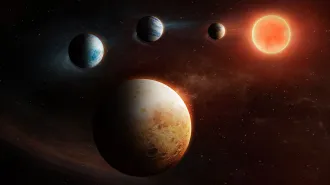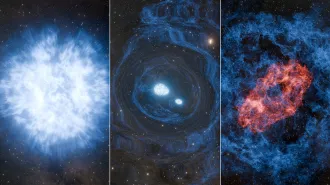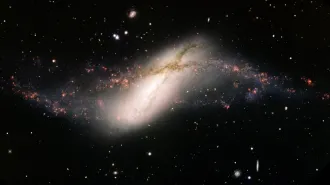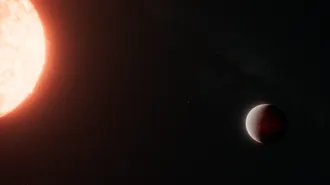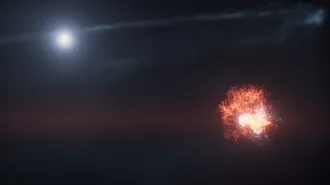 When I was a teen, I liked to stay up way too late with my nose in an Agatha Christie novel, reading compulsively to the end to see if I had guessed the culprit correctly. It wasn’t obvious that a love of mysteries translates into a love of science, but maybe it should have been.
When I was a teen, I liked to stay up way too late with my nose in an Agatha Christie novel, reading compulsively to the end to see if I had guessed the culprit correctly. It wasn’t obvious that a love of mysteries translates into a love of science, but maybe it should have been.
When Christopher Crockett suggested his Planet X story, it was the aura of mystery that hooked me. First, there is the surprise that parts of our own solar system remain opaque, even as we find planets around distant stars and see the cosmic radiation from the universe’s first light. How could our blind spot be so large? Second, there is a real mystery here: Scientists don’t understand what caused the strange, loopy orbits of two dwarf planets beyond the Kuiper belt. In the past, attempts to explain orbital anomalies led to the discoveries of Neptune and Pluto. (As Tom Siegfried mentioned in his Context blog earlier this year, however, similar attempts to explain an anomaly in Mercury’s orbit required not a new astronomical body but a new theory: general relativity.)
Whether or not a Planet X exists, the puzzle, like a good mystery, delights the mind. But better than any novel, the puzzle’s solution has the potential to reveal something new and unexpected about our solar system. To borrow language from an SN reader commenting on Siegfried’s blog, the appeal is that “tomorrow they could discover something that changes everything.” Eight planets or nine. Newtonian physics or Einstein’s general relativity. What’s known or what we can only guess at.
To add to the “what’s known” column in this issue: read about an Asian species of chytrid fungus that has spread to Europe via the trade in live animals. If it jumps the Atlantic, it could devastate North American salamanders, scientists now say. And elsewhere, news of a more ancient pond-hopping: Hidden in the genes of modern-day Rapa Nui islanders is evidence that their ancestors sailed to the Americas and returned to Easter Island more than 500 years ago.
In science, the mysteries tend to be open-ended. Getting the right answer can be satisfying. But more often what you get is more questions. What’s known appears heavily outweighed by what’s still unknown, with the distinct possibility that it could change everything.
